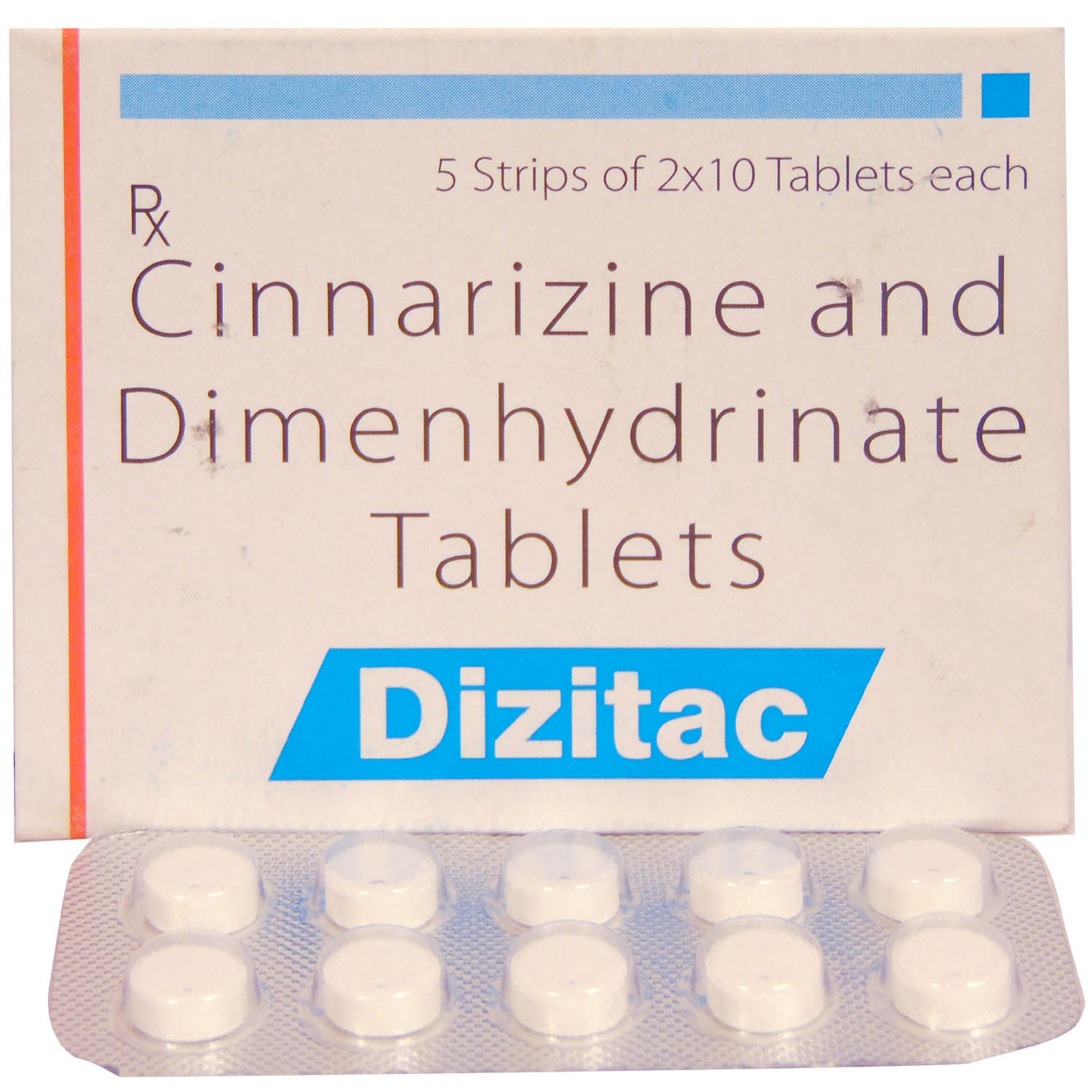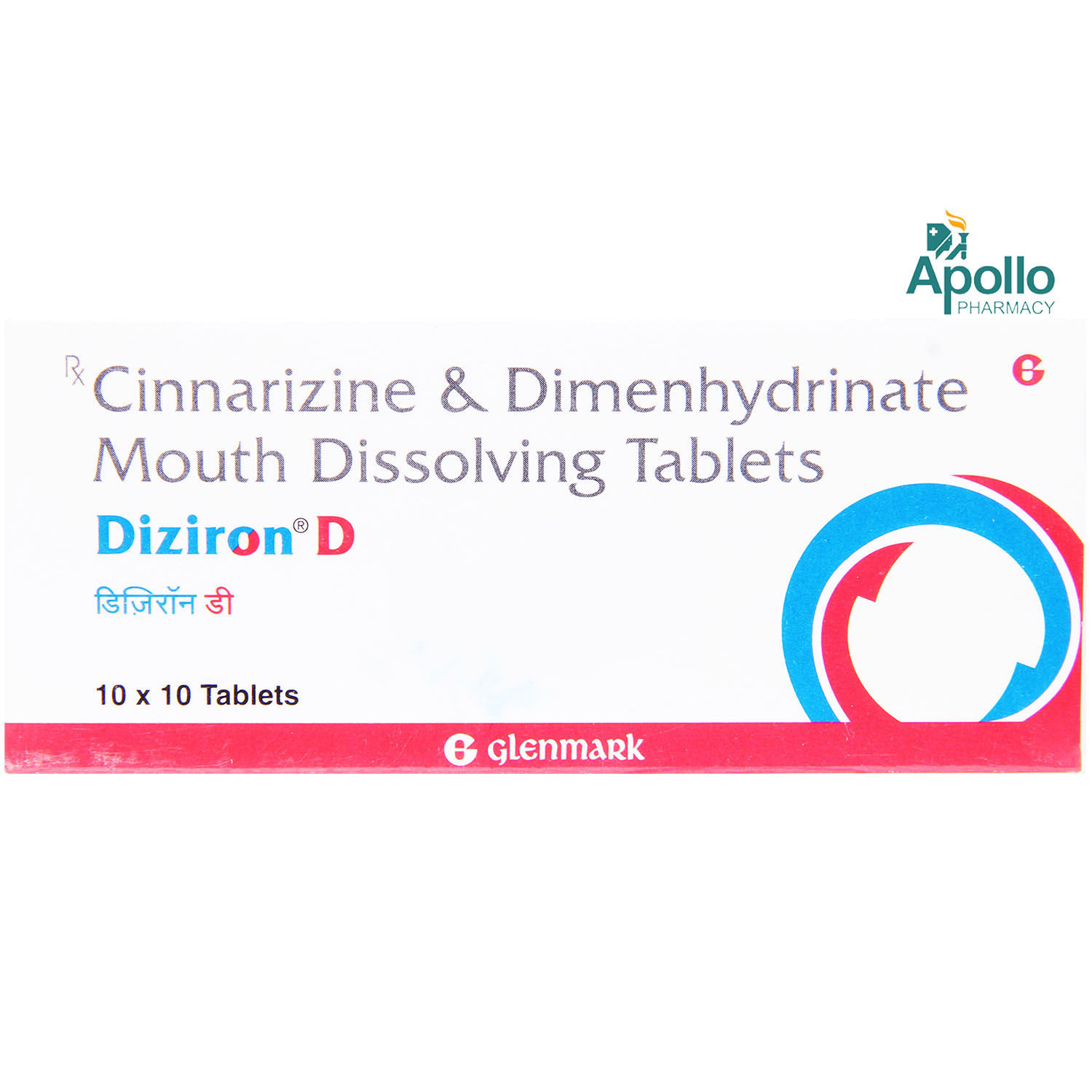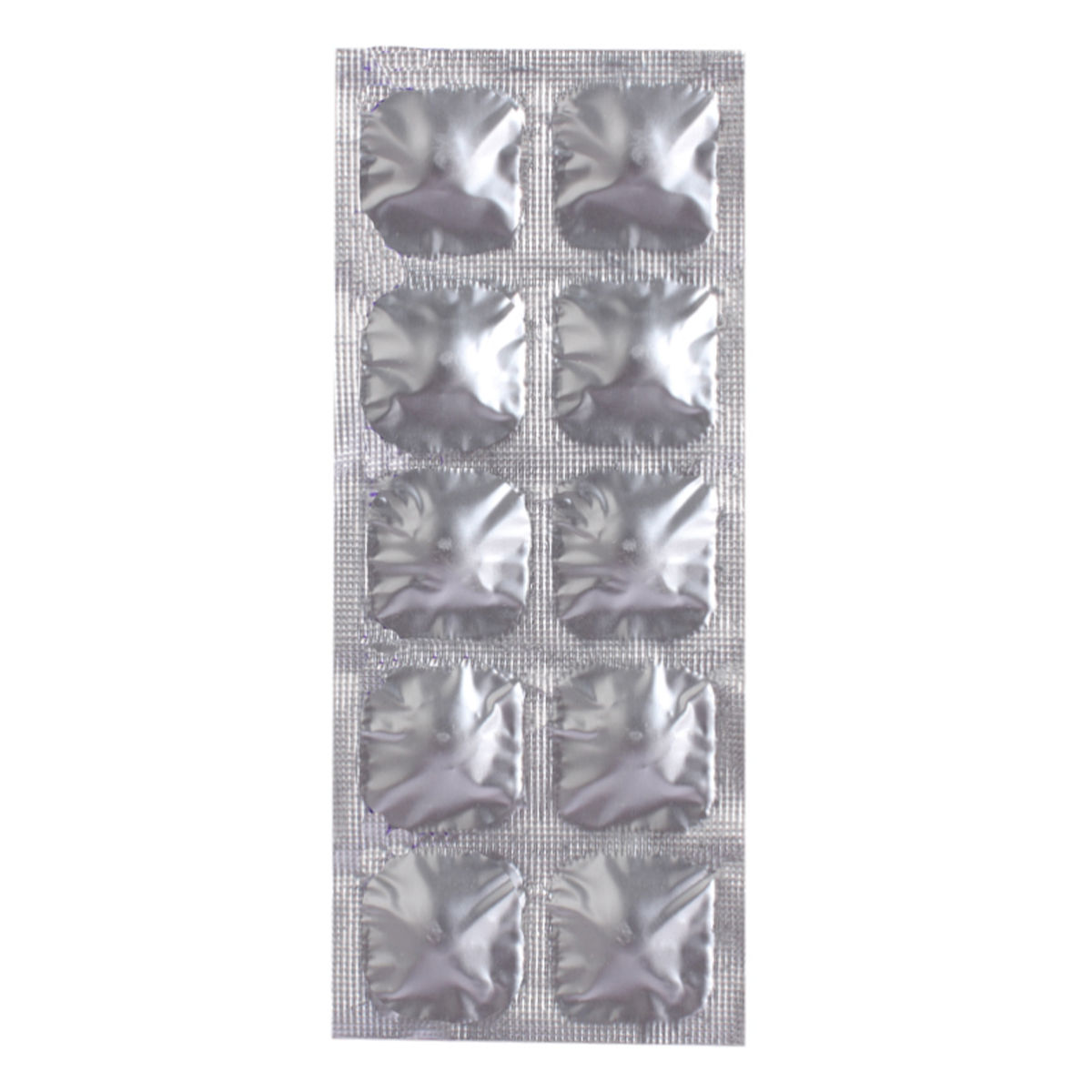Stugil D Tablet 6's
Stugil D Tablet is used to treat the symptoms of vertigo, such as dizziness, spinning sensation, nausea, and vomiting. It can help you to carry out daily activities that are difficult when you have vertigo. It contains two medicines, namely Cinnarizine and Dimenhydrinate, which improve the blood flow in the ear and prevent problems with loss of balance.
₹71.6*
MRP ₹79.5
10% off
₹67.57*
MRP ₹79.5
15% CB
₹11.93 cashback(15%)
Free Delivery
With Circle membership
(Inclusive of all Taxes)
This offer price is valid on orders above ₹800. Apply coupon PHARMA10/PHARMA18 (excluding restricted items)
Know Your Delivery Time
Provide Delivery Location



Selected Pack Size:6
6 ₹71.6
(₹11.93 per unit)
In Stock
10 ₹119.7
(₹11.97 per unit)
In Stock
Available Offers
 Prescription drug
Prescription drugWhats That

Secure Payment

India's Most Trusted Pharmacy

Genuine Products
Composition :
Manufacturer/Marketer :
Consume Type :
Return Policy :
Expires on or after :
About Stugil D Tablet
Stugil D Tablet belongs to a group of anti-vertigo drugs used to treat the symptoms of vertigo, such as dizziness, spinning sensation, nausea, and vomiting. Stugil D Tablet can help you to carry out daily activities that are difficult when you have vertigo. Vertigo is a sudden external or internal spinning sensation that causes dizziness. It creates a false sense that you or your surroundings are moving or spinning.
Stugil D Tablet contains Cinnarizine (a calcium antagonist) and Dimenhydrinate (an antihistamine). Cinnarizine prevents the narrowing of the blood vessels in the ear, improving blood flow. Dimenhydrinate works by blocking the action of a chemical messenger known as histamine, thereby preventing problems with loss of balance. Together, Stugil D Tablet helps reduce the symptoms of vertigo.
Depending on your medical condition, you are advised to take Stugil D Tablet for as long as your doctor has prescribed it for you. Sometimes, you may experience certain common side effects, such as drowsiness, dry mouth, stomach pain, and headache. Most of these side effects do not require medical attention and will resolve gradually. However, you are advised to talk to your doctor if you experience these side effects persistently.
Consult your doctor if you are pregnant or breastfeeding. Stugil D Tablet may cause drowsiness and sleepiness, so drive only if alert. Stugil D Tablet is not recommended for children below 18 years as safety and effectiveness have not been established. Avoid consuming alcohol with Stugil D Tablet as it could lead to increased drowsiness. Inform your doctor about all your medicines and health conditions to rule out unpleasant side effects.
Uses of Stugil D Tablet
Directions for Use
Medicinal Benefits
Stugil D Tablet contains Cinnarizine and Dimenhydrinate. Stugil D Tablet belongs to a group of medicines called anti-vertigo drugs indicated for the symptomatic treatment of vertigo. Cinnarizine is a calcium antagonist that prevents the narrowing of the ear's blood vessels; this helps improve the blood flow in the ear. Dimenhydrinate is an antihistamine that blocks a chemical messenger known as histamine, thereby preventing problems with loss of balance. Together, Stugil D Tablet helps in reducing the symptoms of vertigo, such as dizziness and nausea. Stugil D Tablet can help you to carry out daily activities that are difficult when you have vertigo.
How Stugil D Tablet Works
Storage
Side Effects of Stugil D Tablet
- Drowsiness
- Stomach pain
- Headache
- Dry mouth
What if I have taken an overdose of Stugil D Tablet
Drug Warnings
Do not take Stugil D Tablet if you are allergic to any of its contents; if you have/had angle-closure glaucoma, epilepsy, increased pressure in the brain due to tumour, urination difficulties due to prostate problems, liver or kidney failure, and alcohol abuse. Inform your doctor if you have low or high blood pressure, glaucoma, obstruction in the bowels, overactive thyroid, severe heart disease, and Parkinson's disease. Consult your doctor if you are pregnant or breastfeeding. Stugil D Tablet may cause drowsiness and sleepiness, so drive only if you are alert. Stugil D Tablet is not recommended for children below 18 years as safety and effectiveness have not been established. Avoid consuming alcohol with Stugil D Tablet as it could lead to increased drowsiness.
Drug-Drug Interactions
Drug-Drug Interactions
Login/Sign Up
Co-administration of Stugil D Tablet 6's and Potassium citrate can increase the risk of developing stomach inflammation.
How to manage the interaction:
Taking Stugil D Tablet 6's with Potassium citrate is generally avoided, as it may lead to an interaction, it can be taken if prescribed by the doctor. However, if you experience severe stomach pain, sudden lightheadedness, vomiting (especially with blood), or tarry stools, consult the doctor immediately. Do not discontinue any medications without a doctor's advice.
Co-administration of Stugil D Tablet 6's and Potassium chloride can increase the risk of stomach inflammation.
How to manage the interaction:
Co-administration of Stugil D Tablet 6's with Potassium chloride is generally not recommended, as it can lead to an interaction, it can be taken when a doctor has prescribed it. However, if you experience severe stomach pain, sudden dizziness, vomiting (especially with blood), or dark stools, consult the doctor immediately. Do not discontinue any medications without a doctor's advice.
Coadministration of Stugil D Tablet 6's with Zonisamide can increase the risk or severity of Zonisamide side effects.
How to manage the interaction:
Taking Stugil D Tablet 6's with Zonisamide together is not recommended as it can result in an interaction, it can be taken if your doctor has advised it. However, if you experience shortness of breath, palpitations, fever, or excessive sweating, contact a doctor. Make sure to hydrate yourself during warm weather or after exercise. Do not discontinue any medications without consulting a doctor.
The combined use of ketamine and Stugil D Tablet 6's can increase the risk of developing side effects.
How to manage the interaction:
Co-administration of ketamine and Stugil D Tablet 6's can lead to an interaction, but it can be taken if advised by your doctor. however contact your doctor if you experience any side effects such as dizziness, confusion, difficulty concentrating, or shortness of breath. Do not stop using any medications without a doctor's advice.
Using Stugil D Tablet 6's and sodium oxybate together can increase the risk of side effects.
How to manage the interaction:
Co-administration of Stugil D Tablet 6's and sodium oxybate can lead to an interaction, it can be taken if your doctor advises. however contact your doctor if you experience dizziness, confusion, difficulty concentrating, breathing difficulty, or palpitations. Do not stop using any medications without a doctor's advice.
Co-administration of Esketamine and Stugil D Tablet 6's can increase the risk of side effects.
How to manage the interaction:
Co-administration of esketamine and Stugil D Tablet 6's can lead to an interaction, it can be taken if advised by your doctor. Consult a doctor if you experience drowsiness, confusion, shortness of breath, or palpitations. Do not stop using any medications without a doctor's advice.
Coadministration of Stugil D Tablet 6's with topiramate can increase the risk of topiramate side effects.
How to manage the interaction:
Taking Stugil D Tablet 6's with topiramate is generally avoided as it can result in an interaction, it can be taken if your doctor has advised it. However, if you experience decreased sweating, fever, dizziness, or shortness of breath, contact your doctor immediately. Make sure to hydrate yourself during warm weather or after exercise. Do not discontinue any medications without consulting your doctor.
Drug-Food Interactions
Drug-Food Interactions
Login/Sign Up
Diet & Lifestyle Advise
- Replace regular salt with low-sodium salt, as sodium may aggravate vertigo.
- Avoid foods rich in sodium, such as soy sauce, chips, popcorn, cheese, canned foods, and pickles.
- Avoid fluids containing large amounts of sugar and salt, such as soda or concentrated juices. Instead, drink water, milk, and low-sugar fruit juices.
- Limit salt and sugar intake.
- Maintain a healthy diet and exercise regularly, as it helps improve overall health and boosts self-esteem.
- Perform meditation and yoga. This helps in relieving stress and provides relaxation.
- Follow a regular sleep pattern to improve the amount and quality of sleep you get.
- Avoid smoking, alcohol, and caffeinated drinks.
- Learn relaxation skills as they help in reducing stress.
Habit Forming
Therapeutic Class
Stugil D Tablet Substitute

Spinfree Tablet 15's
₹12.60per tabletStugeron Plus Tablet 10's
₹18.18per tabletDizitac Tablet 10's
₹13.50per tabletVertizac Tablet 15's
₹12.60per tabletGemvert Tablet 10's
by AYUR
₹11.97per tablet
Product Substitutes
Alcohol
Unsafe
Avoid consumption of alcohol while taking Stugil D Tablet as it may cause increased drowsiness.
Pregnancy
Caution
Please consult your doctor before taking Stugil D Tablet if you are pregnant; your doctor will prescribe Stugil D Tablet if the benefits outweigh the risks.
Breast Feeding
Caution
Stugil D Tablet may pass into breastmilk. Please consult your doctor before taking Stugil D Tablet; your doctor will decide whether Stugil D Tablet can be taken by breastfeeding mothers or not.
Driving
Caution
Stugil D Tablet may cause drowsiness and sleepiness. Do not drive or operate machinery unless you are alert.
Liver
Unsafe
Stugil D Tablet should not be taken by patients suffering from liver failure. Please consult your doctor if you have a liver impairment or any concerns regarding this.
Kidney
Caution
Stugil D Tablet should not be taken by patients suffering from kidney failure. Please consult your doctor if you have kidney impairment or any concerns regarding this.
Children
Unsafe
Stugil D Tablet is not recommended for children below 18 years as the safety and effectiveness were not established.
FAQs
Country of origin
Manufacturer/Marketer address
Disclaimer
Author Details
We provide you with authentic, trustworthy and relevant information
Reference
- https://www.hpra.ie/img/uploaded/swedocuments/2182253.PA1238_001_001.7ff0f1ed-1432-40d2-a269-b0b4f8f7f3d0.000001Product%20Leaflet%20Approved.170612.pdf
- https://www.drugs.com/uk/arlevert-20mg-40mg-tablets-leaflet.html
- https://www.tga.gov.au/sites/default/files/auspar-cinnarizine-dimenhydrinate-191112-pi.pdf
























